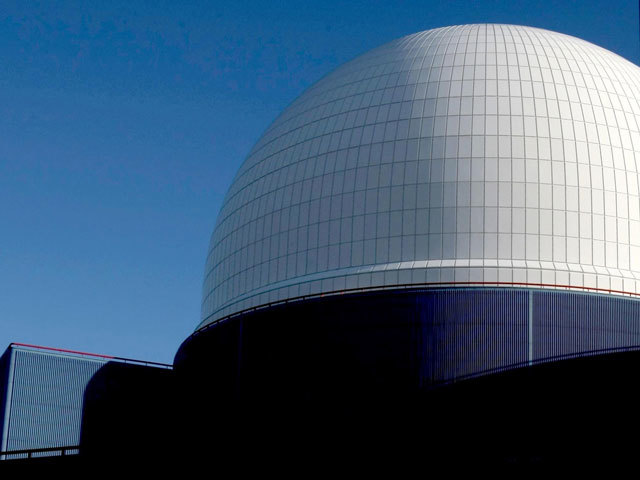
The Chinese firm helping to build the new nuclear power station at Hinkley Point is to submit a design for another site after the Government go-ahead for the £18 billion project.
State-owned CGN said it was now “able to move forward and deliver” nuclear capacity at other UK sites, including Bradwell in Essex and Sizewell in Suffolk.
The plan for Bradwell is to submit a design for UK regulatory approval soon in a process called generic design approval, which could take four years.
The firm will need to get the reactor design and technology approved for use in the UK before building the station, with one third funding from EDF.
The French energy giant is pressing ahead with the £18 billion Hinkley power station after ministers ended uncertainty by saying they had reached a “new agreement”, imposing “significant new safeguards” for future foreign investment in critical infrastructure.
The power station will create 25,000 jobs, hundreds of apprenticeships and deliver 7% of the UK’s electricity in 2025.
Greg Clark, Secretary of State for Business, Energy and Industrial Strategy, said: “Having thoroughly reviewed the proposal for Hinkley Point C, we will introduce a series of measures to enhance security and will ensure Hinkley cannot change hands without the Government’s agreement.
“Britain needs to upgrade its supplies of energy and we have always been clear that nuclear is an important part of ensuring our future low-carbon energy security.”
Ministers said the agreement “in principle” with EDF means the Government will be able to prevent the sale of the French firm’s controlling stake before completion of construction, without the prior notification and agreement of ministers.
The Government said existing legal powers, and the new legal framework, would mean it was able to intervene in the sale of EDF’s stake once Hinkley is operational.
“The new legal framework for future foreign investment in British critical infrastructure will mean that after Hinkley, the British Government will take a special share in all future nuclear new-build projects.
“This will ensure that significant stakes cannot be sold without the Government’s knowledge or consent.
“The Office for Nuclear Regulation (ONR) will be directed to require notice from developers or operators of nuclear sites of any change of ownership or part-ownership.
“This will allow the Government to advise or direct the ONR to take action to protect national security as a result of a change in ownership,” a statement said.
Justin Bowden, GMB national secretary for energy, said: “Giving the thumbs-up to Hinkley is vital to fill the growing hole in the UK’s energy supply needs.”
Jean-Bernard Levy, EDF Group chief executive said the decision marked the “relaunch” of nuclear in Europe.
“It demonstrates the UK’s desire to lead the fight against climate change through the development of low carbon electricity. This decision demonstrates confidence in the EPR technology and in
the world renowned expertise of the French nuclear industry.”
Barry Gardiner, shadow energy secretary, said the announcement was “face-saving” by the Government, adding: “They have failed to get a better deal for billpayers, they’ve caused a crisis in investor confidence in the UK, they’ve risked offending one of our key future trading partners, and in the end all they have done is to pretend to give themselves powers which they already
had.”
University College London’s Professor Michael Grubb said: “The contract will commit UK energy consumers to pay many tens of billions of pounds over a period of 35 years after first operation – to about 2060.
“For this amount, we could now get about twice as much electricity even from the more expensive renewables like offshore wind energy.”
A group opposed to Hinkley, and Greenpeace, delivered a 300,000-name petition to Downing Street calling for the project to be scrapped, shortly after the go-ahead was announced.
John Sauven, Greenpeace executive director, said: “This decision is unlikely to be the grand finale to this summer’s political soap opera. There are still huge outstanding financial, legal and technical obstacles that can’t be brushed under the carpet.”
Horizon, the company behind the proposed Wylfa Newydd nuclear power station on Anglesey, North Wales, said: “New nuclear is vital for the UK’s future electricity mix and so today’s announcement on Hinkley Point C is good news for the country’s security of supply and clean energy needs.”
A Downing Street spokesman said that Prime Minister Theresa May spoke by phone with French president Francois Hollande before the announcement was made, while Mr Clark spoke with his counterparts in France and China.
The spokesman said: “We have done a good deal to secure Britain’s energy security and supply into the future. We are proceeding on the basis of robust new safeguards that will enhance security at Hinkley.
“We are satisfied it is a good deal. It is worth pointing out that there will be no addition to anyone’s bills until Hinkley is constructed and up and running.”
Recommended for you
